The objective of achieving Yili's "carbon neutrality" is a key driver for the development of environmentally-friendly packaging. This also responds to growing consumer demand for their environmental concerns. Therefore, Yili is committed to researching and developing sustainable packaging solutions and actively applying these new packaging solutions to products to reduce environmental impact. Yili has also been consistently taking action to educate consumers on packaging recycling through a variety of programs.
Our Innovation Center was established in 2017 and currently employs nearly 30 PhDs and 10 international experts. The Packaging Research Center is equipped with a range of sophisticated analytical instruments and testing apparatus, and is engaged in research into sustainable packaging technologies. This research includes eliminating the use of non-environmentally friendly materials, developing recyclable homogeneous material packaging, reducing the use of petroleum-based plastics, and using biodegradable packaging materials. To date, the Center has obtained over 70 patents and published more than 30 scientific papers. The research outcomes have been successfully applied to the core products of Yili, including the AMBPOMIAL series, Meiyitian series, NOC Xujinhuan series, Jinlingguan series, and Inikin Brewed Tea.
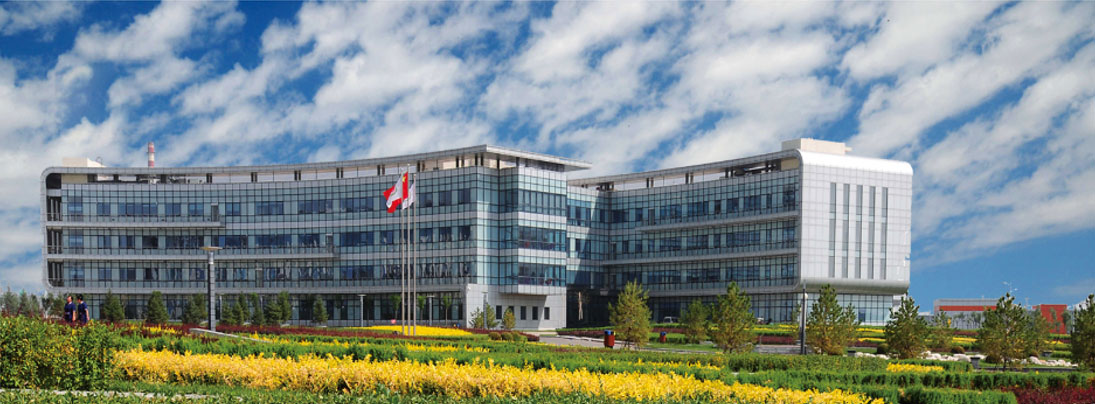
PIQET (Packaging Impact Quick Evaluation Tool) is a branch of SIMAPRO, designed for digital solutions in Life Cycle Assessment (LCA) of product packaging. PIQET is based on the ISO 14040 standard and integrates the Ecoinvent database. In 2021, Packaging Research Center applied PIQET to calculate the carbon emissions throughout the lifecycle of packaging.
The PIQET has been implemented by all product divisions of packaging design processes.
In 2021 January, Yili has launched the 2025 Sustainable Packaging Goals and Roadmap. The Roadmap clarified Yili's requirements for reusability, recyclability and recovery of product packaging, setting relevant targets. The progress has been made by Yili in 2024 as below:
| Categories of Targets | Target Value | Progress made in 2024 | Target Progress |
|---|---|---|---|
| Use of petroleum-based plastic | By 2025,?20,000 tons of petroleum-based plastics will be reduced compared with 2019. | Cumulative reduction of 17 thousand tons in petroleum-based plastic use due to the introduction of eco-friendly technology | In progress |
| Design of Packaging | By 2025, over 99% of packaging materials will be recyclable at the design stage. | 99.12% of packaging materials has been recyclable at the design stage | Achieved |
| Use of PVC Packaging | By 2025, the use of PVC in product packaging will be eliminated. | The use of PVC label has been reduced by 10% in 2024 compared with 2023 | In progress |
| Use of EPS Packaging | By 2025, the use of EPS in product packaging will be eliminated. | The use of EPS has been reduced by 7.36% in 2024 compared with 2023 | In progress |
Note: The use of PVC materials in shrink labels for bottled products such as PET, HDPE has been eliminated.
packaging plastics were reduced
packaging paper were reduced
packaging wood were reduced
We refuse to use packaging materials that may harm environment or lead to spread of diseases or pests.
We recycle and reprocess used packaging materials for use in non-food contact materials.
We recycle used packaging to avoid discarding reusable materials, thereby reducing waste generation.
We are committed to promoting lightweight packaging by minimizing the use of packaging materials while ensuring all other requirements are met.
We prevent the generation of permanent waste, promote degradation of unrecyclable packaging waste for improving soil through fertilization.
In 2024, the launch of Satine Hulunbuir Organic Plant-based Integrated Cap Milk achieved a seamless connection between the cap and the bottle, effectively reducing cap loss and facilitating whole-bottle recycling. In addition, the Carbon Trust has verified that the plant-based integrated cap, made from sugarcane raw materials, has the potential to reduce packaging carbon footprint by 33%.
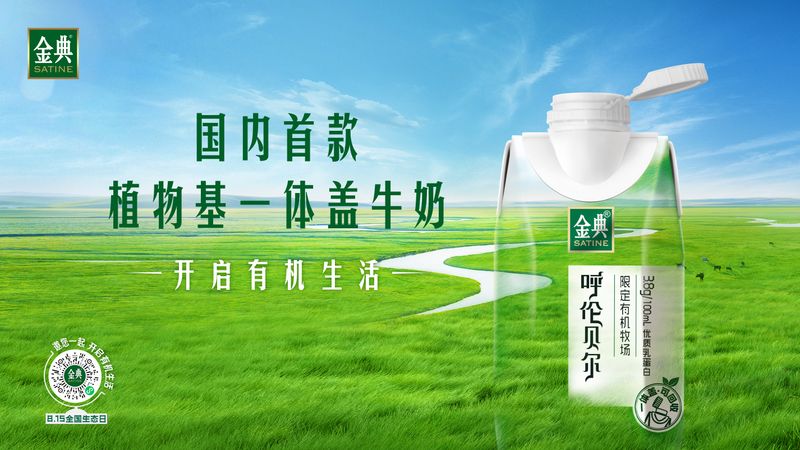
The label-free design of "inkfree volcanic bottle" marks the first time that the industry has applied laser engraving technology to bottled water packaging. Abandoning traditional labels, the packaging of Inikin is made by ink-free laser engraving technology to reduce ink pollution, eliminate the use of label materials and increase the proportion of packaging recycling.
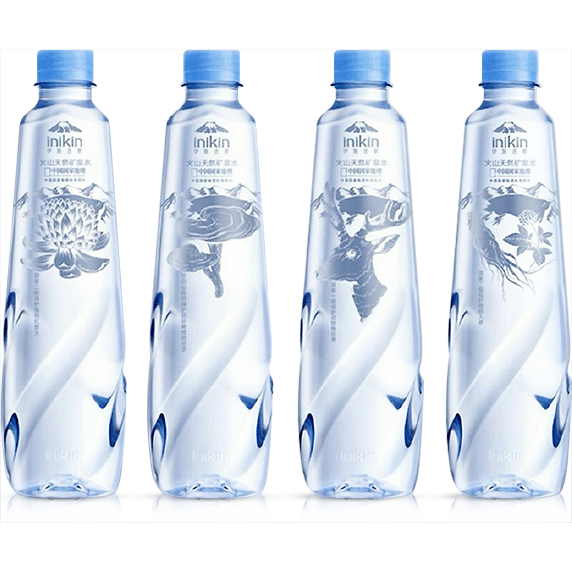
The PLANT SELECTED series represents Yili's sub-brand for the plant-based milk market. The heat shrink labels used for PLANT SELECTED Oat Milk is composed of 50% recycled material (PCR/PIR) and has been certified by Bureau Veritas , which could reduce the product carbon footprint by 17.8%.
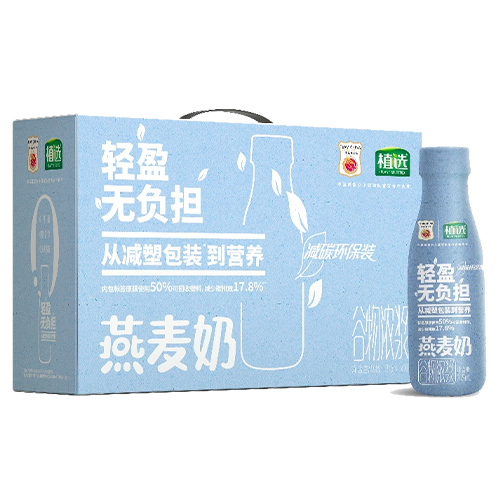
PETG is a more suitable material for food and beverage labelling than traditional PVC material. In 2023, Yili has completed the application of PETG labelling for three sub-brands and nine categories of products.
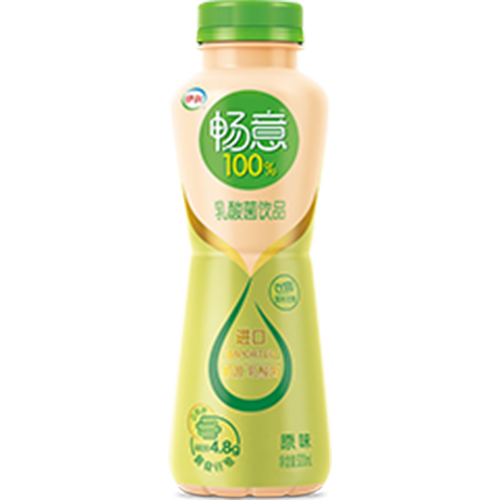
As a national brand trusted by consumers, Yili has identified that our product packaging is still made from plastic, paper, metal, and other materials. These materials are not readily recycled or reused, and are more likely to be disposed of through landfill and incineration, which could have an adverse impact on the environment. Thus, we have the responsibility to reduce our packaging and use more environmentally friendly materials. At the same time, we also have the responsibility to encourage our customers to live in a more sustainable manner.
In 2024, Yili Satine launched the Empty Bottle Recycling Program 2.0 in collaboration with the AiHuiShou platform. Smart recycling machines were set up for Satine bottle disposal. Recycled bottles were remanufactured into everyday items. Satine and AiHuiShou also collaborated with logistics and supermarket partners to expand recycling channels. The campaign covered over 12,000 communities in 38 Chinese cities, attracting over 16,000 participants and recycling over 4,390 kg of milk bottles, thereby contributing to the earth's sustainable development.
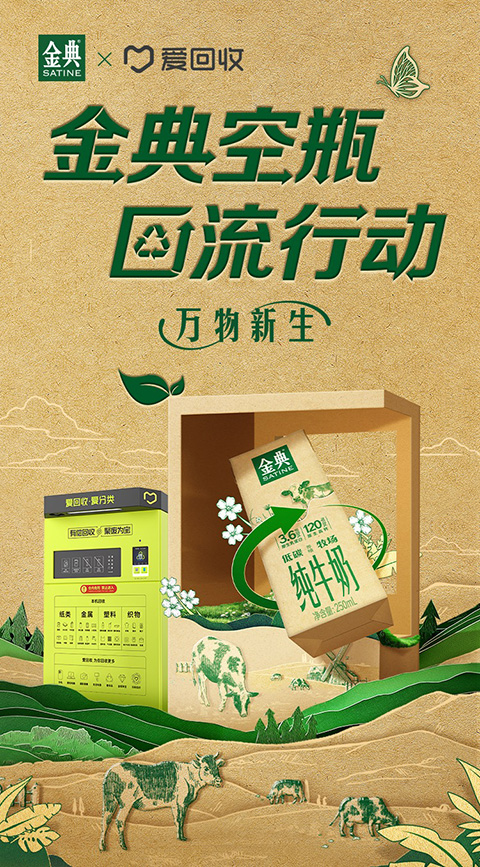
On 15 September 2024 (World Cleanup Day), Yili Cute Star Student Pure Milk launched the "National Campus Carbon Reduction Campaign" in collaboration with Water Drop, with a view to encouraging schools to recycle milk cartons. With a presence on nine campuses and a participation rate of approximately 3,000, the initiative has successfully recycled over 100,000 cartons, contributing to a significant reduction of 1.08 tons in carbon emissions.
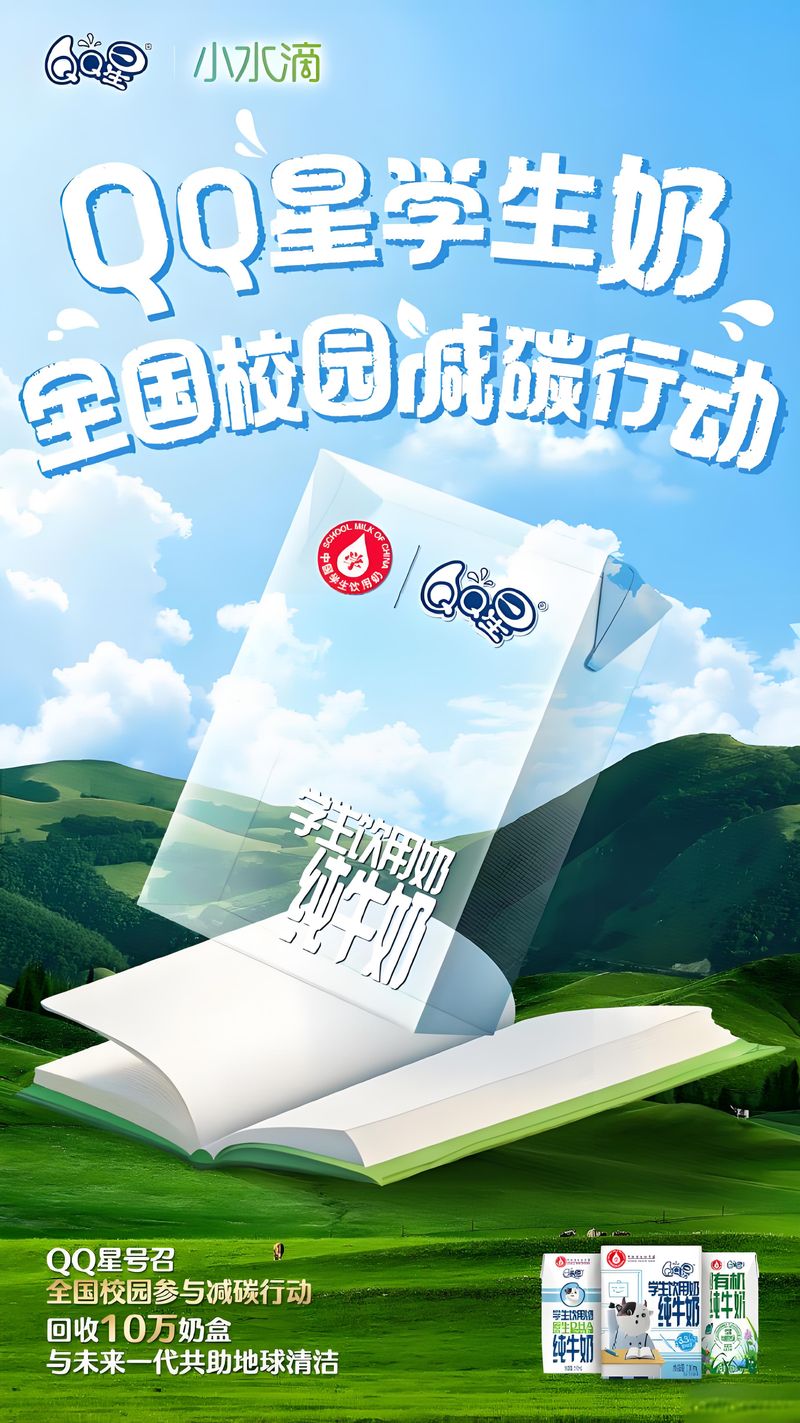
Our People & Community
>Our Business
>